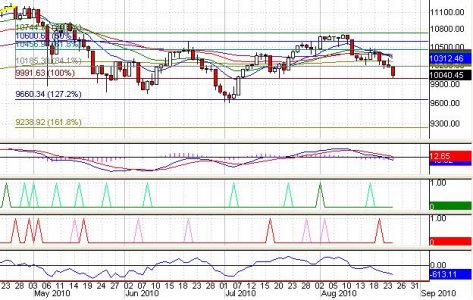Everyone have on their seatbelt?
How low is it going to go? 7,000 anyone?
No, it's rigged it ain't ever going that low again.
You know why it dropped 900 points in a few minutes right? It was shut down but the ECN's weren't. It will be shut off before it sells to 7k and this time the ECN's will get shut off too. They will jam platforms and bottleneck trading. The economy is great, go stock market TO>>>THE>>>>MOON
LOL
with that said. I have been doing ok except some bad XOM option trades last week that I had to get the trades busted. friggen ridiculous. Lost some $ on GS option spreads too but made it up else where. Ended up down a bit overall last month.







